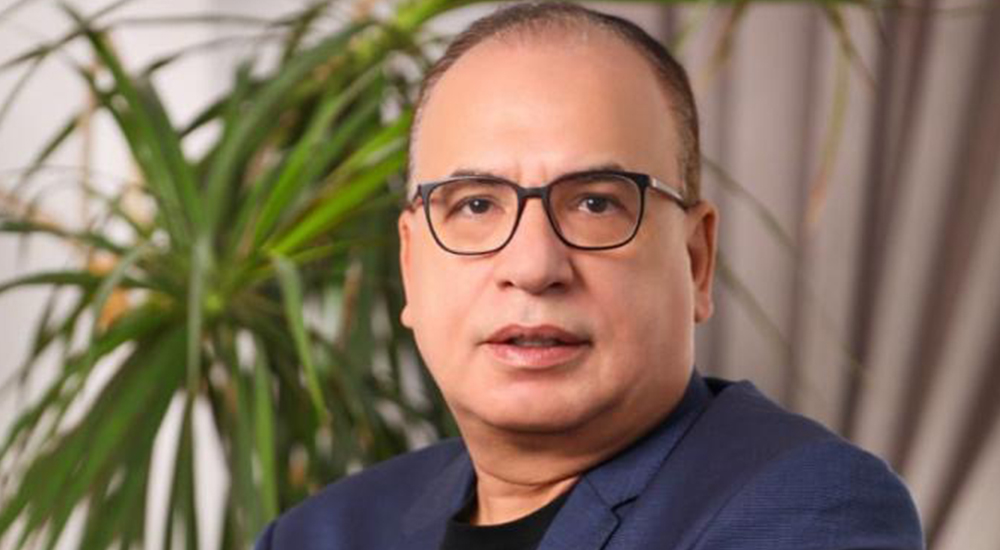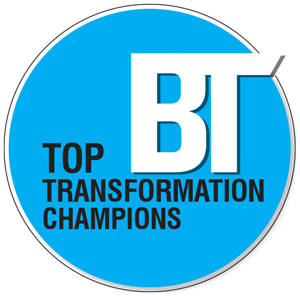Top Transformation Champions: Driving enterprise business transformation

 Many organisations in the region are ahead of their global counterparts in terms of their digital transformation plans. The Dell Technologies Digital Transformation Index study 2021 found that 90% of organisations in UAE and Saudi Arabia have accelerated at least some of their digital transformation programmes, ahead of the global benchmark of 80%.
Many organisations in the region are ahead of their global counterparts in terms of their digital transformation plans. The Dell Technologies Digital Transformation Index study 2021 found that 90% of organisations in UAE and Saudi Arabia have accelerated at least some of their digital transformation programmes, ahead of the global benchmark of 80%.
These forward-looking organisations accomplished in a few months what normally takes years. Among other areas, these regional businesses successfully implemented solutions for the automation of their operations, optimisation of employee productivity, and transformation of customer engagement.
They have subsequently gained business agility, new competitive advantages, and revenue growth.
Some organisations struggle while taking up digital transformation projects due to limited time and resources. There is also a need to change internal culture and mindsets, have the right skill sets and expertise, and get the right technology partners.
Letting go of old systems is also important, but organisations need to take care of vendor lock-in and hidden legacy systems. Moreover, understanding and analysing new trends allow businesses to prepare for new opportunities and grasp them.
Instead of transforming by adopting multiple technologies, focusing on changes that align with business priorities results in a real competitive advantage. Having customer-centric goals is also essential and it can increase the value of the products or services offered, enabling resiliency and business continuity.
Digital transformation brings a new opportunity to every department within an organisation. Dell research shows that globally, more than half of the employees may not always have the motivation or energy to act on digital transformation in the workplace.
Human progress is integral to digital progress. To maximise this potential, organisations need to ensure that internal skills capabilities are developed at scale and speed.
Attaining the C-suite’s full backing of digital transformation strategies can help make the most of these investments, spurring an internal culture of digital innovation. Implementing appropriate change management and employee training initiatives throughout the transformation process is also equally essential.
Modernising an enterprise requires placing people, processes, and technology in the best positions for success. At the centre of this equation are people. When technology and human ingenuity are aligned, they can have a powerful transformative effect. However, many executives are still struggling to close the digital skill gaps while some are facing a lack of employee buy-in and a workforce culture that is resistant to change.
Keeping up with disruptive and emerging technologies is essential to staying ahead. There are a few things IT leaders can do to stay up to date with the wealth of information. They can start by engaging with their technical or engineering teams on recent disruptive or useful technologies. They can also research newer technologies that can solve existing business problems; these challenges can be the drivers behind quick technology adoption.
The technologies of tomorrow will enable us to reimagine the way the world connects and collaborates. One can foresee great advancements in areas such as quantum computing, the use of digital twins, robotics, Artificial Intelligence, Machine Learning, and edge computing.
These abilities will ultimately underpin new human-machine partnerships that enable organisations to provide goods and services that are truly innovative.
Metaverse essentially describes an alternative place or space, something distinct from reality. However, it also has more to do with the mixing of the physical and digital in real-time to create truly immersive experiences. Hence, the use of the metaverse experiences may expand significantly, from gaming to retail, healthcare, automotive, and other verticals.
These experiences are best developed with an intelligence-driven platform and a compute everywhere IT infrastructure. An intelligence-driven platform is a digital workspace that can securely manage devices, applications, content, and infrastructure.
The concept of compute everywhere IT infrastructure is also about moving to decentralised, real-time computation. This enables the interconnectivity and interoperability that will define immersive metaverse experiences.
While there’s a lot of work ahead, investing in digital infrastructure across cloud and edge environments can give enterprises a definite head start.
Another big concern is climate change which affects everyone. Strong environmental, social, and governance frameworks are the starting point for all organisations to develop and measure their performance. Achieving real progress requires thoughtful goal-setting and rigorous measurement. Dell Technologies, for example, emphasises Environmental, Social, and Governance or ESG measures. This ensures that the company achieves its business goals and also delivers positive results for all stakeholders.
A strong ESG strategy also helps organisations mitigate risks, innovate through challenges, and build trust.
Organisations can become role models by optimising their supply chains, leveraging green technologies and data centres, investing in circular innovation, and championing new ways of working. While the practicalities will vary for each organisation, it is essential that they listen to their customers, partners, investors, team members, and communities to understand where to focus and develop their efforts accordingly.
Key takeaways
- Time and resource constraints often impact an organisation’s digital transformation initiatives.
- For real competitive advantage, organisations should focus on changes that align with business priorities.
- Enterprises should focus on compute everywhere infrastructure for decentralised, real-time computation.
- Digital infrastructure across cloud and edge environments can help enterprises kickstart the transformation journey.
- Businesses also need to take care of vendor lock-in and hidden legacy systems.






